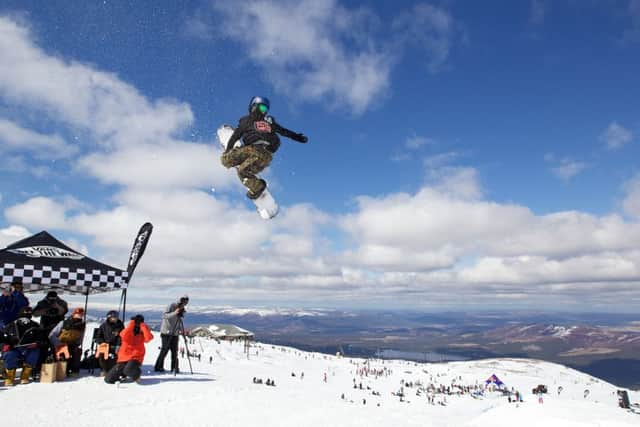Roger Cox: Mother Nature takes centre stage on Scottish ski film Late


In a new Scottish ski film, however, screening at the Fort William Mountain Festival later this month, the weather plays such a prominent role in the story that it almost becomes a character in its own right – in fact, if it had an Equity card its agent would probably have been on the phone already, demanding a mention in the end credits.
Filmed last May and screening at Fort William on 19 February, Late follows a super-talented crew of homegrown skiers and boarders around some of the best backcountry terrain in the Highlands as they seek out steep gully lines and awe-inspiring open faces. Their exploits are expertly captured by Puzzle Media’s Jack Mullner, and the film is a worthy recipient of the FWMF Introducing Prize – a gong celebrating “new talents, new pursuits, new film-makers or all three.”
Advertisement
Hide AdThese days, though, beautifully-shot and edited footage of skiers and boarders doing mind-blowing things is not hard to come by on the interweb. If you want to stand out from the crowd you ideally need a good, old-fashioned story to hook people in, but if you’re limited by time and budget that can be a tricky thing to manufacture.
The Late crew had just three weeks to make their film – not long by anybody’s standards – and at the outset it’s pretty clear that their game plan is fairly fluid. After a good first day’s skiing near Glencoe, the weather closes in and the team find themselves holed up at their base camp on the shores of Loch Tay. Doing his best to look on the bright side in a piece to camera, Aaron McLean, one of the skiers, says: “It’s been a good opportunity to get the team together and do some more planning on this film... get the storyboard working, get the storyline going...” If the ensuing brainstorming session resulted in some sort of overarching narrative concept, however, it’s not particularly evident from watching the rest of the film – the aim of the game seems to be simply to ski as many different Grade A lines as possible in the time available. But that’s fine, as it turns out, because Mother Nature is about to enter stage left and provide a subplot all of her own, as she stalks the Late crew around the country like a malevolent spirit from a horror movie, popping up to make life difficult when they least expect it.
Her first appearance is sinister but low-key: as the crew set out for the upper reaches of Ben Lawers, she shrouds the hill in a thick veil of mist, forcing them to stick to the lower slopes. Then, when they head to Stob Coire Nan Lochan, she makes her big entrance. As the crew begin their 700-vertical metre ascent from the road, laden down with skis and camping gear, she pounces, hammering them with torrential rain – and that’s just the warm-up. When they reach their campsite, the wind picks up and then picks up some more. During the night, the door of one of the tents is ripped open, forcing skier Twig Spensley to spend an hour and a half painstakingly sewing it back together with a pocket sewing kit. “One of the most uncomfortable nights of my life, for sure,” he grins next morning.
The skies then clear and skiers McLean, Rob Kingland and Amy Marwick and snowboarder Joe Simpson have themselves an excellent couple of days in paradise, drawing stylish lines on giant blank canvases, but Mother Nature isn’t done with them yet. At Beinn An Dothaidh the team get hailed on for about half an hour on the walk up, the hailstones pinging off their jackets like airgun pellets. And then, at Braeriach, she makes her Oscar bid. First, on the long slog to their campsite the team are treated to ferocious rain, wind and hail; then, in the middle of the night, filmmaker Jack Mullner’s tent pole breaks, forcing sleeping arrangements to be hastily rearranged.
The following morning, still cocooned in his sleeping bag, Mullner says: “I suppose nobody really gives you any credit for your film unless they see that you’ve been through the wind and the hail and the rain... and the wind and the rain and the wind and the rain.” At that moment he may have been cursing the weather, but now he’s dried out and warmed up even he would probably admit that the attritional conditions the Late team endured are a big part of what makes their film special. I hope these guys make another Scottish ski film soon, although perhaps with the weather in more of a walk-on part.